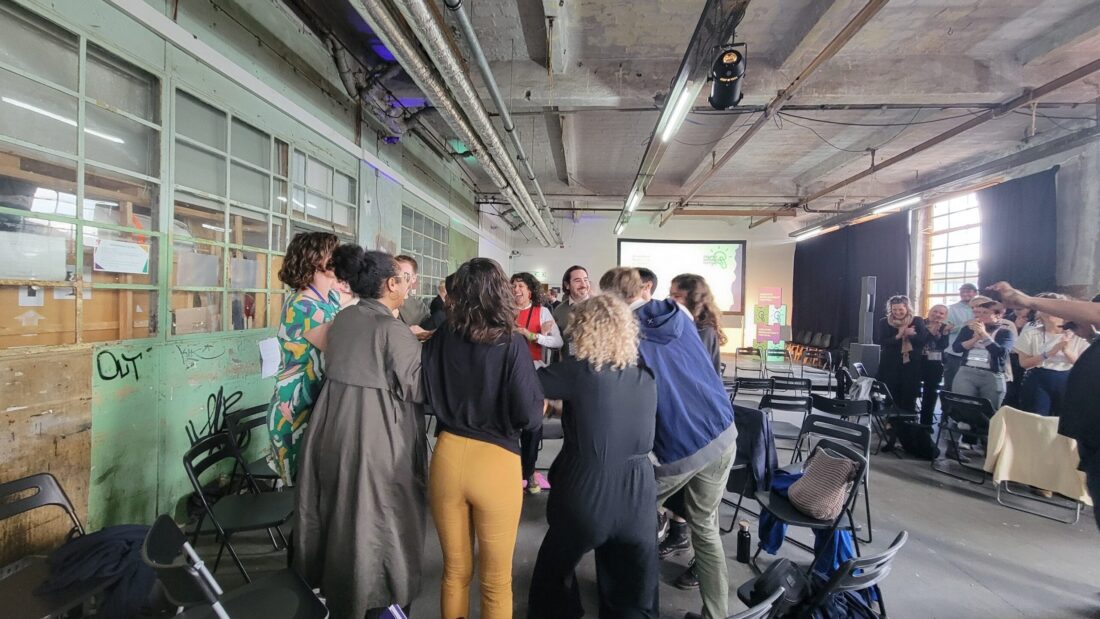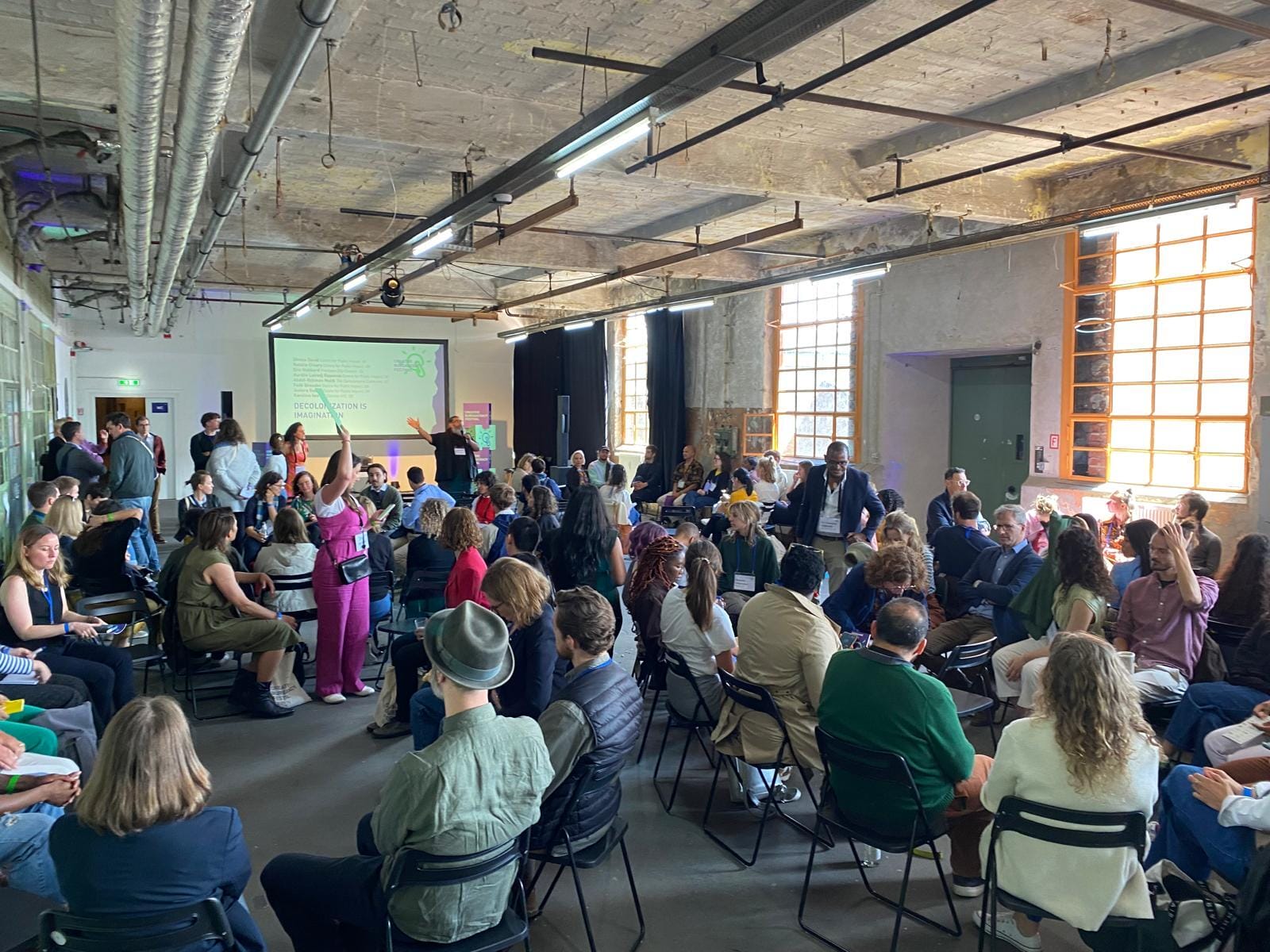Last week, the Centre for Public Impact’s Global Development team was immersed in UNDP’s Istanbul Innovation Days, an energising space for social, institutional, and public innovation. As a fully remote and global team, The Istanbul Innovation Days was the perfect in-person backdrop to reflect on the Global Development Initiative’s offering and collaboration over the last 2+ years. We continue to ask: how can we better coordinate, partner, and collaborate to address the complexity of our times? What is our role, and how should it evolve?
During an intensive week of introspection and inspiration, we reunited with old colleagues – such as Tina Stoum, Robyn Bennett, Charles O’Malley, Charles Landry, and Guilio Quaggiotto – and made new connections with Edgar Pieterse, Yanick Kemayou, Nanjira Sambuli, Alfredo del Valle. By the end, we left with a renewed conviction in one powerful takeaway that had been in our mind for a long time: systemic collaboration is no longer a fringe approach – it’s becoming essential.
Being surrounded by people actively reimagining how institutions can function reminded us of the value and significance of our work. We left Istanbul evermore encouraged about the approach we’re taking.
The remainder of this blog builds on the LinkedIn reflections of my fellow team members Saumya Shruti and Javiera Godoy, as well as our director Aurélie Lairedj Rapenne who has kindly integrated some of her early writing on systemic collaboration (and, in complete transparency, has shared with us her inspiration from Ezra Klein and Derek Thompson’s new book, Abundance.) So, in the spirit of emergence and courage, we share our live musings with you.
Today, we’re describing systemic collaboration as a holistic way of tackling the root causes of complex, interconnected challenges. It brings together people and organisations from across sectors – government, civil society, philanthropy, private enterprise, and communities – to reimagine the institutions, norms, and processes that shape our world.
As we reflect on our experience of developing the Global Development Initiative across 22 projects including the development of CPI’s Collective, we’re able to articulate that new possibilities can emerge when knowledge, power, and ideas are shared openly – when a mindset of abundance wins over competition or compliance.
The relevance of systemic collaboration feels evermore present given that we’re living in an age of slow emergencies: climate change, rising inequality, democratic erosion, and deepening polarization. These aren’t problems any single actor or sector can solve alone. Yet, the dominant responses remain fragmented – often rewarding what’s familiar, measurable, and easy to fund, while sidelining bold, community-led ideas.
Systemic collaboration flips that script. It enables us to move from scarcity to shared capacity – from siloed interventions to a collective force for experimentation, learning, and transformation.
This might make you think about networks, coalitions, ecosystems, coordination groups, learning circles. Whatever the name, the principle is the same: bringing together a diverse group of committed actors and building trust. Because collaboration without trust is just coordination. Real transformation comes when we invest in co-ownership, shared accountability, and openness to emergence – when we invest in collaboration as an ongoing practice.

At CPI’s Collective, for example, we use a “community weaving” approach. Everyone brings their thread – be it lived experience, institutional insight, funding, or frontline experimentation – and together, we weave a community strong enough to hold complexity and change.
We often think of systemic collaboration as an ecosystem effort. It thrives when governments, grassroots movements, philanthropic actors, communities, and private-sector innovators are all present. And the more diverse the room, the more powerful the outcomes.
As my colleague Saumya mentions on her LinkedIn post, we saw this in Istanbul: from the Mayor of Dhaka sharing post-revolutionary public reforms to Indigenous leaders reframing data as a form of land and sovereignty, to late-night conversations dreaming up shared futures. The brilliance wasn’t on the panels (or in boardrooms) alone but in the spaces between them.
We left Istanbul with a reminder of something simple but profound: people have always rebuilt, reimagined, and created anew. And we continue to contribute to this legacy with greater confidence and surety to work alongside those equally devoted to justice, reducing inequality, and systemic change.
I’ll end with two points from a conversation with cohort member Carlos Delgado. He described CPI’s Collective as “a plethora of like-minded folks interested in solving pressing social challenges through a non-traditional way of looking for answers.” He continued by signalling “the importance of folks who don’t come from the same background, sector, industry, country, language, and culture coming together; the solutions that come from those collaborations are brighter.”
We couldn’t agree more. And so we keep weaving.
PS: Carlos is hosting a webinar on 30th April at 2pm EST on The Future of Results-Based Accountability (RBA): Leveraging AI for Greater Impact”. Register to join the conversation!




